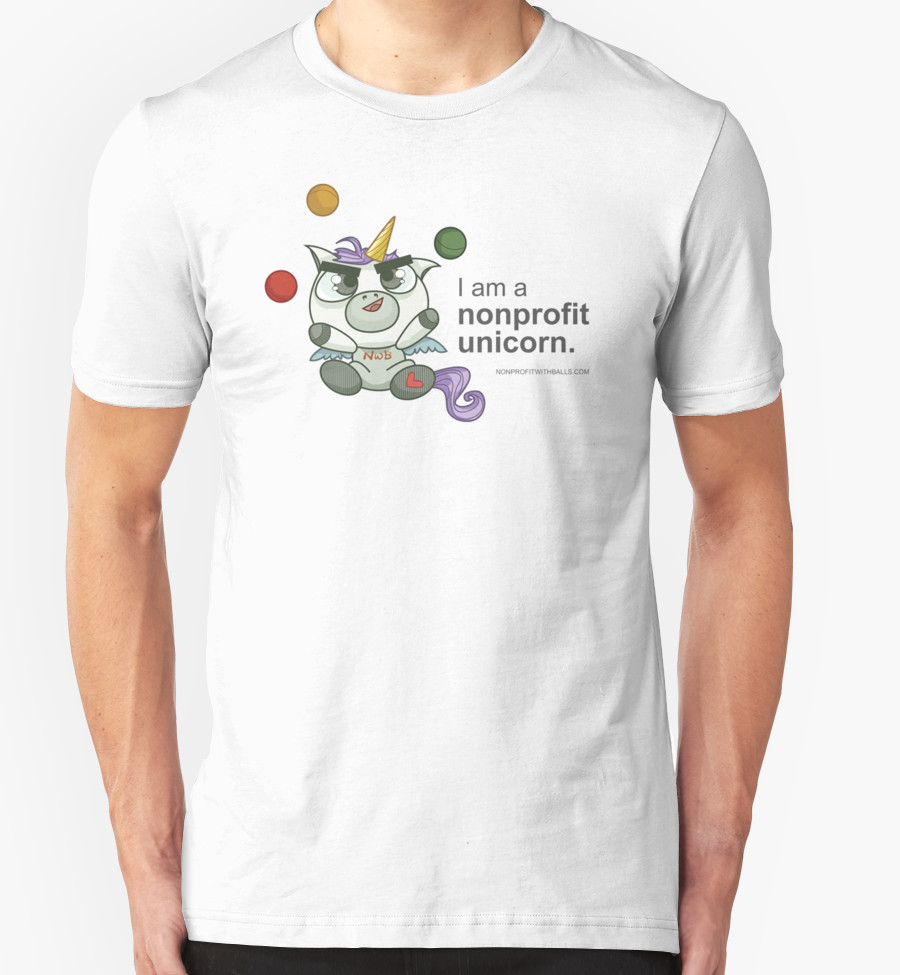 Hi everyone, before we get into today’s topic, look, NWB merchandise is on sale!
Hi everyone, before we get into today’s topic, look, NWB merchandise is on sale!
All right, business pals, we need to have another talk. First of all, I love y’all. I just moved into a new house this week, and spent time at a hardware store trying to find these little thingies that hold up the shelves in my kitchen cabinets. They’re called “shelf pins,” and you can move them to different holes to lower or raise the shelves. Without some business somewhere making these little pins, my cabinet would not be able to fit my really tall bottles and it would just look awful. So yes, I am deeply appreciative for all the businesses out there doing all sorts of useful, interesting, and important stuff. I am glad you exist, and I am glad to pay money for the stuff you make and do.
But dude, the condescension needs to stop. Recently, I’ve noticed it has been in the form of explaining to us simple nonprofit bumpkins just how much better off we’d be if we just acted more like for-profit businesses. Sometimes it is conscious, most times it is not, but always it is irritating.
One time, I was showing a potential board member our Saturday morning program, which served 150 kids. It was his first visit, and he launched into a lecture about having a business plan. “We have a three-year strategic plan,” I said, and before I could elaborate, he interrupted to explain what a business plan was. He interrupted several times to explain various Important Business Concepts to me.A colleague, Allison Carney, wrote a blog post and calls this phenomenon “bizsplaining.” (#bizsplaining) It is business people “talking to nonprofit staff like they have never successfully operated a blender, let alone worked (successfully) in their underpaid, understaffed, and completely vital position for years.” Here are other examples from my personal experience:
“I don’t understand why your revenue sources fluctuate so much every year. At [the Fortune 500 corporation I work at], our revenues are very predictable.”
“We asked for $50K to redesign our website, and when we brought it up to senior management, they liked our plan so much they gave us an additional $25K. So you never know!” (This was actually a workshop I attended at a nonprofit conference a few years back).
“You should try to open a side business. Like my church, it sells sausages every weekend!”
“What’s the ROI for your program? Do you know what…uh, ROI is…?”
Look, y’all, just because you’re great at something, does not mean that you’re automatically great at a completely different thing, all right? Just because you’re an awesome carpenter, it doesn’t mean you’re now by default also an amazing beatboxer and have any legitimacy to give advice: “You know, your beatboxing would sound better if you wear goggles. When I do carpentry, I always wear goggles.”
Nonprofits and for-profits are different, so unless you have experience working in a nonprofit, stop assuming you know stuff. Like Allison says, “Just because you worked at a wealth management firm for ten years does not mean you know how to run my food bank.”
I’ve written about these differences between for-profits and nonprofits in many posts. But I want to reiterate a few key points to help you really understand what we are dealing with that you business peeps may not have to deal with. Let’s use, as an example, something that many of us have, the iPhone. Imagine if we put the same restrictions on Apple that many nonprofits face:
Overhead and Restricted Funding: “I would like to buy an iPhone. How much is that? $700? OK, fine, here you go. But, I don’t want more than $100 to be used to pay for your employees’ wages; I want most of my money to go to computer chips and other materials. I also don’t want you to use more than $70 on your rent, insurance, electricity for this store, or research and development because I don’t want to buy from a store that has more than 10% in overhead. After one year, you need to report to me exactly what my $700 paid for.”
Sustainability Myth: “Hey, I hear the iPhone 6S is totally awesome! You have some on sale? Cool! But…how will you keep your operations going after I buy an iPhone 6S and I am no longer here? How do you guarantee that you will be here selling iPhones to other customers? What is your plan to not be so dependent on customers? Sorry, but although I hear great things about your phone, I can only buy phones from stores that I know will survive and be around for the long run.”
Track Record/Outcomes: “You sold 300 million units of iPhones and made a gazillion dollars? That’s great, but that’s an output, not an outcome. What impact did you make? Did you measure how owning an iPhone has transformed the lives of customers? Did they access more educational opportunities? Did family members feel a stronger sense of connection to each other? Did owning iPhones reduce the crime rates, and if so, how much money did society save by having fewer people visit the emergency room? Did you do a pre-and-post-purchase survey and have a comparison group of people who did not use an iPhone? Also, can you disaggregate these results into race, ethnicity, gender, age, and geography?” (Thanks to colleague Matthew Turner for inspiring this paragraph. Here is a related post: Imagine if Apple Had to Run Like a Nonprofit).
Those are just some of the challenges we face. If you didn’t know that’s what it’s like, or if you didn’t understand any of that, then you have little ground to give advice. Despite these and myriad other challenges, nonprofits all over the world continue to survive and do their important and complex work. We are like metal shelf pins, helping to lift up the shelves in the cabinets of community.
This does not mean that we nonprofits don’t have things to learn from you for-profits. We do, but let’s agree that have things to learn from each other. We appreciate your support and encouragement and know you mean well, but before you start #bizsplaining things to us simple, ignorant nonprofit kids, please spend some time actually listening, learning, and understanding context.
Also, maybe try a little more humility. I got into a discussion with someone regarding nonprofits’ unfairly being asked to act more like businesses without having access to the same flexibility and resources. His solution: Nonprofits should be more “startuppy.” That’s an idea to consider. But you do realize that 90% of start-ups fail, right? Heck, over half of all businesses fail in general, and 46% of that can be attributed to INCOMPETENCE, according to this.
I don’t point that out to be glib, because, again, for-profit businesses are awesome, and we rely on you to do our jobs, and failure is a critical part of the process. That’s why we nonprofits don’t come up to you and say things like, “Hey, you know what you businesses should do? Have more group discussions about why you fail so often. Maybe do something we like to call ‘brainstorming.’ Have you heard of it? And make sure there’s hummus, because hummus has lots of protein, good for cognitive functions. We nonprofits have hummus at our brainstorms all the time.”
We don’t often nonprofitsplain, so please extend the same courtesy and stop the #bizsplaining. Thanks for considering.
Your nonprofit pals.
—
Make Mondays suck a little less. Get a notice each Monday morning when a new post arrives. Subscribe to NWB by scrolling to the top right of this page and enter in your email address. Also, join the NWB Facebook community for daily hilarity.
Also, join Nonprofit Happy Hour, a peer support group on Facebook, and if you are an ED/CEO, join ED Happy Hour. These are great forums for when you have a problem and want to get advice from colleagues, or you just want to share pictures of unicorns. Check them out.
Discover more from Nonprofit AF
Subscribe to get the latest posts sent to your email.

